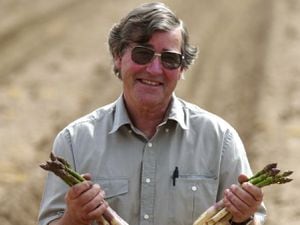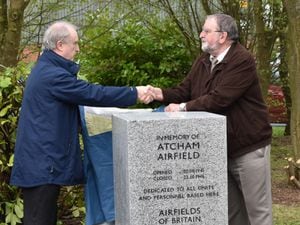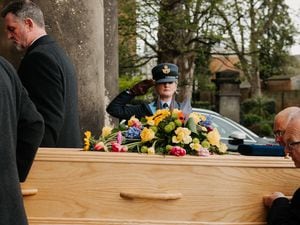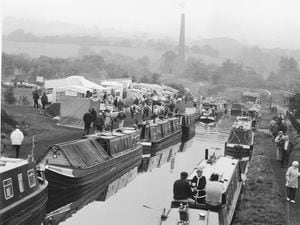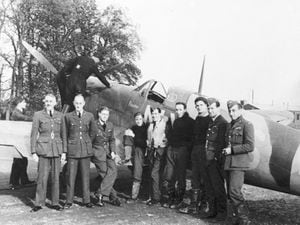Homesick evacuees returned to face the bombs
In September 1939 young Tom Boden, along with his brother and two sisters, were evacuated from Liverpool to rural Shropshire to escape the bombs which were expected to rain down on the city at any moment.

The farm at High Hatton, near Hodnet, was meant to be a safe haven, but had its own dangers - a pig savaged the leg of his older brother John. And sister Chrissy hated it so much and was so homesick that she refused to drink the tonic she was supposed to take for throat problems, deliberately became ill, and got her wish to return to Liverpool.
Now the Boden children's story is being brought alive for a modern generation of youngsters, as Tom's wartime experiences have provided the inspiration for a series of children's books written by his grandson.
"A Pig Squeal At Midnight" by Michael Thame and published by Book Bubble Press is the second in the series, a prequel, and is set in those High Hatton days.
"He did not so much enjoy it, as experience it," said Michael, from Didsbury in Manchester.
"Some things he liked, but ultimately he was homesick. He was staying on a farm, where there were pigs, and a boar savaged John's leg, and there were geese and ducks in the farmyard which Tom fed.
"I believe the couple they were staying with were called Alf and Mae Higgins. I think when Tom was in the navy that he went back once, to see how Alf and Mae were getting on. I don't know if Mary, the youngest did, but he specifically said that he doubted John ever went back."
Tom was born in 1930 into a growing, and ultimately large, Catholic family who lived in the poor Scotland Road area of inner-city Liverpool and when war came in 1939 Tom, along with older brother John and younger sisters Chrissy and Mary, were packed off to Shropshire. Their parents stayed behind. Chrissy's rapid return left just John, Tom, and Mary in Shropshire, where they stayed for about 10 months.
"Three of them stayed there for a year during the Phoney War before they returned to Liverpool just in time for that city to experience a huge amount of German bombing," said Michael.
"Pop worked on the docks in Liverpool, but had been in the navy and had been shipwrecked during World War One at least twice. One thing he did that was remarkable, was on a Saturday lunchtime, and after a five and a half day working week on the docks, he would cycle to Shropshire to see the kids.
"He would stay overnight and cycle back the next day in time for work on the Monday. There and back is akin to a stage of the Tour de France - about 120 miles - and he often cycled in the dark because of the blackout. I think that's incredible.
"Mam went a couple of times, I think, but she also looked after the younger siblings that weren't evacuated, so didn't go often.
"The reason for the books stems from the fact that as my granddad is a great storyteller I decided to commit his stories to paper for future generations and ended up doing a biography of his early years up to the age of 17.
"Within that was the start of a real murder mystery. One day in 1940 or 1941 a German bomb blew up a house in my granddad's street blasting a large iron pipe up to street level. My granddad and his siblings subsequently played on this pipe before one of them discovered a body in there.
"The body was dressed in Edwardian clothes, and my granddad suspects the police didn't investigate as it was clearly an historic murder and there was a war on.
"This gave me the inspiration to write the children's stories, the first of which, Spies, Lies & Dangerous Skies, tells of the body in the pipe and the children's subsequent efforts to solve the case.
"That led to the idea of writing an entire series of mysteries during the war years. So the second book, a prequel, is set in High Hatton, Shropshire, where granddad was evacuated in September 1939."
Tom, who is now 88, has lived in Tonbridge, Kent, since 1974. He spent 12 years in the Royal Navy and served in the Korean War. He returned to Liverpool before deciding in 1972 to move to Australia, but returned to England in 1974 and settled in Kent where he worked as a psychiatric nurse for about 25 years.
.................

